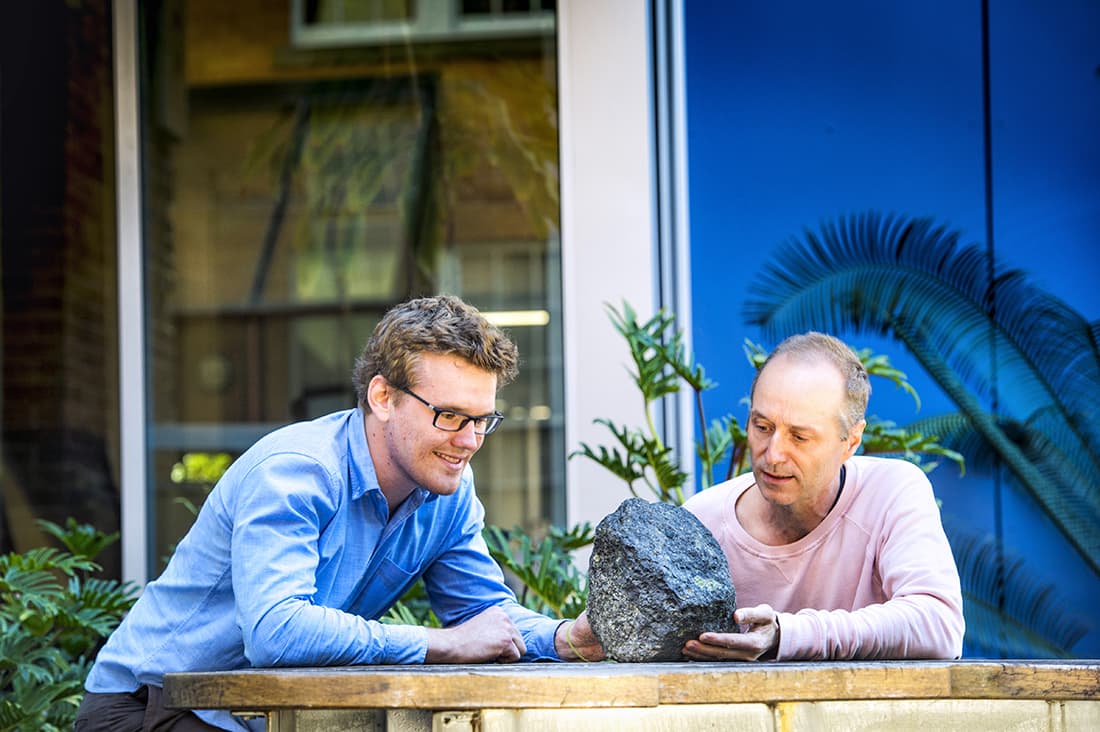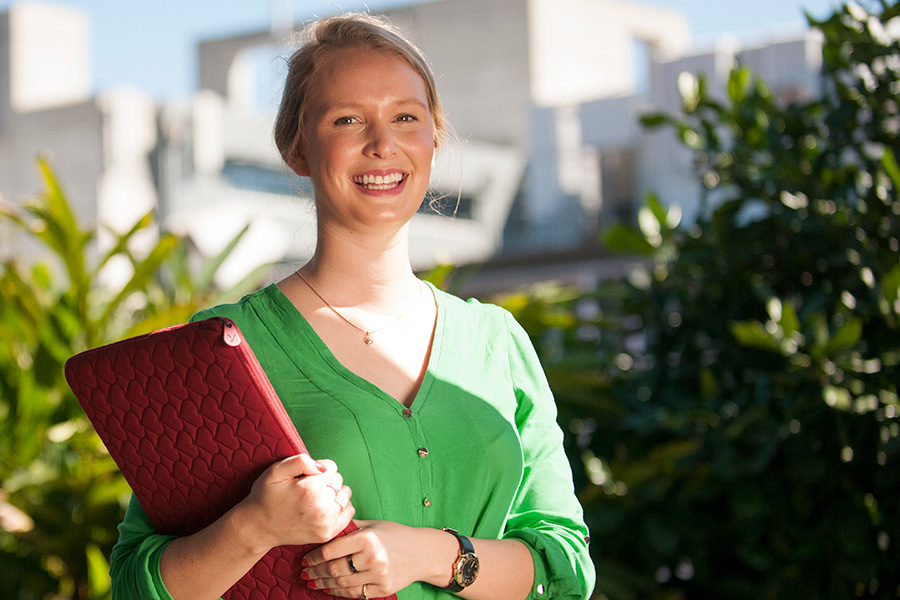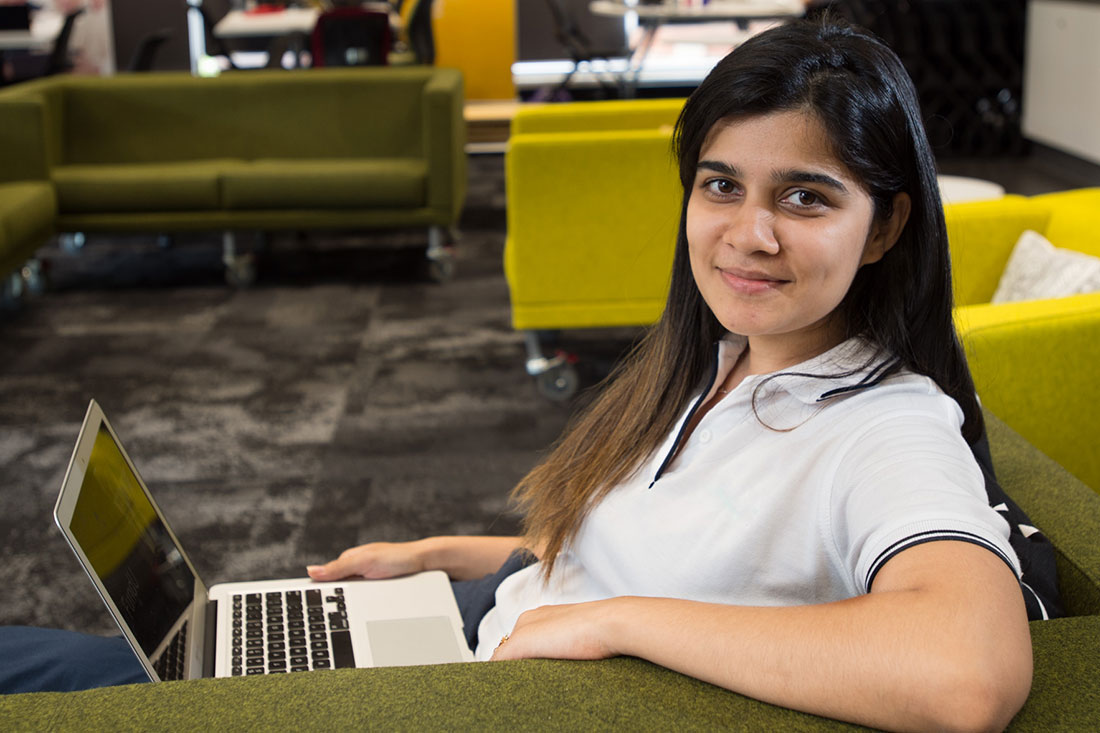
Recognising the diversity of skills and backgrounds, our Master of Philosophy (MPhil) is a personalised degree designed to meet your career and research goals. Study in one of our faculties or choose a non-specialised MPhil to build your research skills and advance to a PhD.
Details
| Course code | IF80 |
|---|---|
| Attendance | Part time or full time (part-time study is not available for international students) |
| Course duration | 2 years full time |
| Start month | Start any time |
| CRICOS code | 095410G |
Tailor opportunities to your strengths, experience and career goals. A research degree skills audit helps you and your supervisors to identify the coursework and training that will support your research and employment goals.
During the course, you'll:
- engage with other students across all disciplines and be exposed to transdisciplinary concepts
- acquire knowledge in areas vital to progressing into the research workforce
- benefit from the support and mentorship of experienced researchers, who'll provide you with the ideal training foundation for a future PhD.
Entry requirements
To qualify for entry to the Master of Philosophy, you usually need to have:
- a proposed research project that the faculty has the resources to supervise and support
- either:
- a completed bachelor degree (AQF Level 7) or equivalent in a relevant discipline, with a minimum grade point average of 5 (on a 7 point scale) and relevant professional or research experience
- a completed bachelor honours degree (AQF Level 8) in a relevant discipline.
- Before considering a Master of Philosophy, you should read the HDR Course Regulations (PDF file, 335.3 KB).
Find a supervisor and research topic
We recommend that you discuss your research interests with your proposed supervisor early in the application process. You can search for a supervisor using our experts database.
As part of your application, you must propose a research topic and develop a research proposal. You can search our student topics database for available research projects or propose your own research topic. You may ask a supervisor to help you identify or refine a research topic.
Costs and scholarships
There are no fees for Master of Philosophy students who are Australian or New Zealand citizens, or permanent residents of Australia.
International students can find out more about fees and costs by checking course information.
You may be eligible for a scholarship in one of our scholarship rounds to help cover your costs while you're studying. Alternatively, you can browse all research scholarships.
Research areas
Explore our research disciplines to see the exciting directions our research is taking, or explore all QUT research.
Business
Our high-quality research and research training are undertaken in collaboration with end users and deliver tangible economic, environmental and societal benefits to corporate, government and community partners.
Explore areas like:
- accounting, governance and social enterprise
- business innovation
- organisational behaviour
- employment and labour markets
- behavioural economics
- entrepreneurship
- econometrics
- consumers, stakeholders and markets.
Creative industries, education and social justice
We aim to achieve real and positive sustainable impacts by leading the world in rigorous discipline-based and interdisciplinary research that engages authentically with communities, professions and industry.
Explore areas from:
- Creative Industries
- Design
- Communication
- Education
- Justice
Engineering
Our research tackles significant real-world problems and delivers innovations that respond to existing and emerging economic, societal, spatial, management and technological challenges. Our research outputs are wide ranging, covering areas such as:
- architecture, landscape architecture, and interior architecture
- construction management, project management, and quantity surveying
- urban and regional planning, development and governance
- civil, infrastructure, transport, structural, geotechnical and construction engineering
- environmental engineering, and integrated water resources management
- electrical, electronics and communications engineering
- robotics, autonomous systems, computer vision, and image and signal processing
- mechanical and materials engineering, computational modelling, and asset management
- biomedical engineering and technologies
- process engineering, sustainable industrial biotechnology, and bioprocessing.
Health
Get hands-on experience with patients and students, and collaborate with government, community groups, hospitals and institutions from around the world. Your work has the potential to advance health care in areas including:
- behavioural neuroscience and mental health
- chronic conditions, including cancer
- healthy lifestyles, ageing and environments
- emergency care and health services
- infection and injury prevention
- genomics and personalised health
- vision and eye impairment and treatment
- childhood nutrition and adversity
- air quality, allergies and respiratory illnesses
- tissue engineering, regenerative medicine and wound care
- road safety and connected vehicle technologies.
Law
As our commercial, social and digital worlds, and ecological footprint continue to shift and change, our laws and regulatory governance systems at the national and international level must progress with them. Our research is helping to shape the law and guide policy reform in areas like:
- health law
- environmental law
- commercial and property law
- international law and global governance
- intellectual property law
- technology, data and automation, innovation and the law.
Science
Our world-class and internationally recognised scientists explore the frontiers of biological, physical, and digital worlds to drive innovation and develop solutions to complex, real-world challenges. Strong connections and long-standing partnerships enable us to meet industry and societal demands for scientific, data-driven and technological solutions that will transform the social, economic and environmental wellbeing of people across the globe. Join us to explore research in:
Make the most of your degree

More than a supervisor
Your support team will include external supervisors from industry as well as our academic staff. You'll develop positive and collaborative relationship, helping you progress toward your research goals.

Build graduate skills
We want you to succeed in your studies and in your career. Our Graduate Research Education and Development (GRE+D) program offers seminars, workshops and practical experiences to get your ready for life after graduation.
Writing your research proposal
One of the most important steps in your application is your research proposal. It should include:
- your research topic
- an overview of previous research in the area
- the objectives of your research
- your proposed research methods and plan
- your supervisor
- any coursework requirements.

How to apply
Before you apply for a research degree, there are a few steps you need to complete. You'll need to make sure you meet the entry requirements, find a supervisor, get your supporting documents in order and complete your research proposal.
Contact us
If you have questions about the best options for you, the application process, your research topic, finding a supervisor or anything else, get in touch with us today.